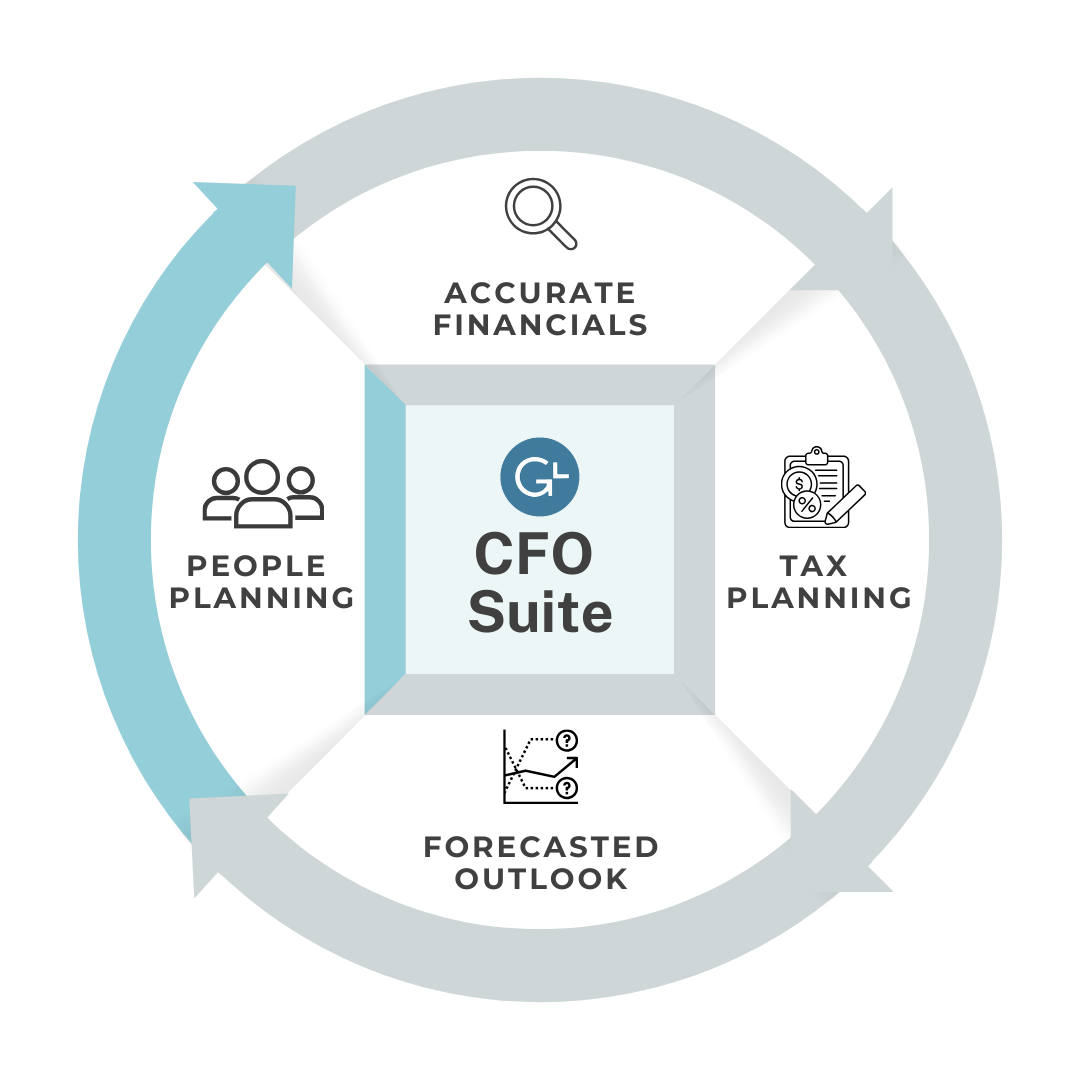What The Big Beautiful Bill Means for Your HR & Payroll Practices
If you've been keeping an eye on legislation lately, you may have heard about the recent FY 2025 federal budget reconciliation legislation, aka The Big Beautiful Bill. Although it’s packed with a lot of things only tax nerds get excited about, there are some very real HR and payroll implications that businesses need to pay attention to, especially as we look ahead to 2026 and beyond.
Below is a breakdown of the current interpretations of the most relevant changes, along with a few thoughts on how to prepare.
Topics Covered:
- New Reporting Requirements for Tips & Overtime
- Expanded Fringe Benefits & Tax-Advantaged Programs
- Executive Compensation Changes (Heads Up, Nonprofits & Public Cos)
- HSA Eligibility: Easier Access, More Options
- Changes You Shouldn’t Miss
New Reporting Requirements for Tips & Overtime
Starting with tax year 2025, employers will need to separately report both tips and overtime on Form W-2. These changes are tied to new federal income tax deductions available to employees: up to $25,000 for tips and up to $12,500 for overtime. However, these deductions begin to phase out for individuals with modified adjusted gross income (MAGI) over $150,000, or $300,000 for joint filers. Both deductions are temporary and will sunset after December 31, 2028. While the deductions themselves apply at the individual level, the new reporting requirements apply to all employers regardless of industry, as long as they have employees who receive tips or qualify for federal overtime under the Fair Labor Standards Act (FLSA). That said, if you’re in an industry where tipping is not customary or where employees are exempt from
FLSA overtime rules, these changes may not apply to your workforce. It's worth reviewing your employee classifications and pay structures to be sure.
What this means for you:
- Although payroll providers (think ADP, Paychex, Rippling, Gusto, etc.) will be responsible for preparing Form W-2 for each employee, employers are still responsible for reviewing those forms for accuracy.
- Tips and overtime will need to be broken out as separate line items on the 2025 Form W-2 (due in early 2026).
- For tips, the employee’s occupation must also be reported.
- Although the Treasury may allow some flexibility in how amounts are approximated for 2025, it's important to understand what changes your payroll provider is making to support these new requirements. That awareness will help you conduct a more accurate review of W-2s once they’re generated.
Expanded Fringe Benefits & Tax-Advantaged Programs
There’s good news for employers trying to offer competitive benefits on a budget:
- Dependent Care FSAs: The pre-tax contribution limit is rising from $5,000 to $7,500 starting in 2026.
- Student Loan Repayment: Employers can now permanently exclude up to $5,250/year of student loan payments from employee taxable income.
- Employer Childcare Credit: The tax credit for employer-provided childcare increases to 40% (or 50% for small businesses) of qualified costs, with a max credit of $500,000–$600,000.
- Paid Family & Medical Leave Credit: This credit is now permanent and more accessible. Employers can now count state-mandated leave toward eligibility (even though it doesn’t count for the credit amount itself), and you can choose whether to apply the credit to wages or insurance premiums (not both).
What this means for you:
If you’ve been hesitant to roll out benefits like student loan repayment or childcare subsidies, this might be the sign you’ve been waiting for. And if you already offer these programs, it’s time to revisit your tracking and tax credit strategy to make the most of the updated rules.
Executive Compensation Changes (Heads Up, Nonprofits & Public Cos)
The Bill makes two significant changes to executive pay that HR teams should flag now:
- For publicly held corporations: The $1M compensation deduction cap will now apply across all related entities, based on aggregation rules under IRC 414. This affects how you track and allocate executive comp in multi-entity structures.
- For tax-exempt organizations: The definition of a "covered employee" for excise tax purposes now includes anyone who ever earned over $1M since 2017. That means more execs may trigger the 21% excise tax going forward.
Ready to Meet Your Fractional HR Team?
What this means for you:
More detailed tracking and historical compensation audits may be needed. HR and payroll teams should review past comp data and flag potential compliance issues now.
HSA Eligibility: Easier Access, More Options
Three big HSA-friendly changes in the bill:
- Telehealth: Pre-deductible telehealth is now permanently allowed for HSA-eligible plans.
- Direct Primary Care (DPC): Coverage under a DPC arrangement (≤ $150/month) no longer disqualifies individuals from HSA contributions.
- Bronze & Catastrophic Plans: These are now considered high-deductible health plans, making them eligible for HSA pairing.
What this means for you:
If you offer a High Deductible Health Plan with HSA, these changes may give employees more flexibility and increase enrollment. It's also a good time to refresh your benefits communications around HSA eligibility.
A Few Fringe Changes You Shouldn’t Miss
- Bicycle commuting reimbursement is now taxable again (starting in 2026). If you offer this benefit, it’ll need to be treated as taxable income.
- Moving expense reimbursements remain non-deductible and taxable, unless the move is military or related to the intelligence community (yes, really).
ERC Claims Tightened
If you’re still dealing with Employee Retention Credit (ERC) claims, be aware that the law disallows refunds for Q3 and Q4 2021 unless those claims were filed before January 31, 2024.
Final Thoughts
There’s a lot packed into The Big Beautiful Bill, and some of these changes will require updates to payroll systems, benefit plan documents, and how you report compensation. But the upside is that there are also more tools and incentives for supporting your team in meaningful ways.
If you're a GrowthLab customer and want help sorting through how these changes might affect your people strategy, let's talk!

Frequently Asked Questions
What’s changing with Form W-2 reporting for 2025?
Starting with 2025 W-2s (due in early 2026), employers must report tips and overtime as separate line items.
Additionally, for tips, you’ll need to include the employee’s occupation on the W-2.
Who is responsible for preparing the updated W-2 forms?
Your payroll provider (e.g., ADP, Paychex, Rippling, Gusto) will handle W-2 preparation, but employers are still responsible for reviewing them for accuracy.
Understanding what changes your provider is making will help ensure you’re ready to validate those forms when they’re released.
Are these new reporting requirements optional in the first year?
Not exactly.
While Treasury may allow some flexibility in how employers approximate overtime and tip amounts for 2025, the W-2 reporting itself is required. Employers should still aim to track this data cleanly starting January 1, 2025.
What are the new tax deductions for employees?
Employees can now deduct up to $25,000 for qualified tips and up to $12,500 for FLSA-defined overtime pay.
These deductions are available from 2025 through 2028 and phase out at higher income levels.
What’s new with fringe benefits and tax credits?
- Dependent Care FSA limit is increasing to $7,500 in 2026.
- Student loan repayment benefits are now permanently tax-free up to $5,250/year.
- The Employer-Provided Childcare Credit increased to 40–50% of eligible costs.
- The Paid Family and Medical Leave Credit is now permanent with expanded eligibility.
Does this impact our HSA eligibility or health plan offerings?
Yes! Telehealth is permanently allowed pre-deductible in HSA plans. Direct Primary Care plans up to $150/month no longer disqualify HSA contributions. Bronze and Catastrophic Marketplace Plans now qualify as HDHPs for HSA pairing.
What if we offer bicycle commuting or moving expense reimbursements?
- Bicycle commuting benefits are now considered taxable income (again).
- Moving expense reimbursements remain taxable, unless the employee is in the military or intelligence community (yep, really).
Any changes to executive compensation rules?
Yes, two major updates:
- Public companies must now aggregate compensation across related entities when applying the $1M deduction cap.
- Tax-exempt orgs must track any employee who earned over $1M since 2017 for the 21% excise tax.
What if we filed ERC claims late?
ERC refund claims for Q3 and Q4 of 2021 must have been filed by January 31, 2024. If they weren’t, they’re now disallowed.
And if you want the quick version, check out our Newsletter (subscribe below), or feel free to use the link above to schedule time to chat!
Other Blogs Related to HR People Advisory






